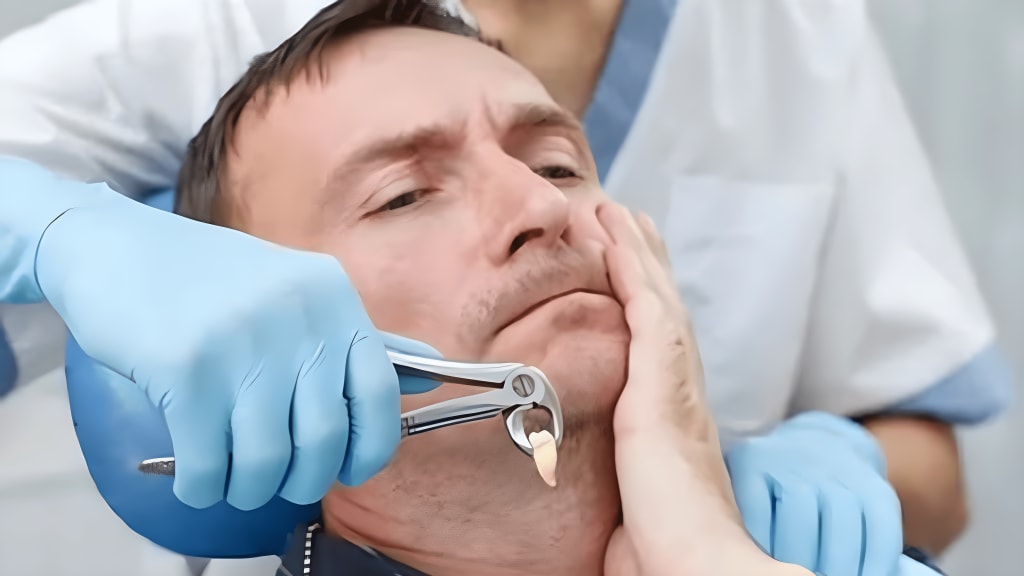Wisdom Tooth Extraction Cost & Procedure: What You Need to Know
Learn about wisdom tooth extraction: procedure, costs, reasons for removal. Understand impacts, risks & recovery. Make an informed decision for dental health.

Wisdom teeth, also known as third molars, are the last set of molars located at the back of your mouth. These teeth typically start to emerge between the ages of 17 and 25, a period associated with gaining wisdom, which gives them their name.
However, the confined space within the mouth often leads to diverse dental issues related to wisdom teeth. As a result, their removal becomes necessary.
If you're seeking professional assistance for Wisdom Tooth Extraction in Chembur East, we'll explore the procedure and associated costs in this article.
Why Wisdom Tooth Extraction?
The Issue of Impaction
One of the primary reasons for wisdom tooth extraction is impaction. Impacted wisdom teeth occur when there isn't enough space in the mouth for these teeth to emerge properly.
As a result, they can become trapped within the jawbone or gum tissue. This can lead to pain, swelling, and even infection.
Risk of Dental Crowding
Another common concern with wisdom teeth is dental crowding. Even if these teeth manage to partially emerge, they might push the existing teeth around, causing misalignment and crowding.
This can affect the overall alignment of your smile and potentially undo the effects of previous orthodontic treatment.
Potential for Infections
Partially erupted wisdom teeth can create a passageway for bacteria to enter the gums and cause infections. This can lead to pain, swelling, and even the development of cysts or abscesses, which can damage the surrounding bone and teeth.
The Wisdom Tooth Extraction Procedure
Wisdom tooth extraction is a routine dental procedure, often performed by an oral surgeon or a dentist. The procedure can vary based on the tooth's position and whether it's impacted or not.
Step 1: Consultation and Examination
Before the extraction, your dentist will conduct a thorough examination of your mouth using X-rays. This helps them determine the position of the wisdom teeth, their angulation, and any potential complications.
Step 2: Anesthesia
On the day of the procedure, local anesthesia will be administered to numb the extraction area.
Depending on the complexity of the extraction or the patient's anxiety level, sedation options such as oral sedatives, nitrous oxide (laughing gas), or even intravenous (IV) sedation might be used.
Step 3: Extraction
The extraction process begins with a small incision in the gum tissue covering the tooth. If the tooth is impacted, the surgeon might need to remove some bone to access and extract the tooth.
In some cases, the tooth might be divided into smaller sections for easier removal.
Step 4: Cleaning and Stitches
After the tooth is removed, the extraction site is cleaned to remove any debris. Stitches might be needed to close the incision, though some extraction sites might be left open to heal.
Step 5: Recovery
The recovery period after a wisdom tooth extraction can vary. Patients are usually given instructions on how to manage pain, swelling, and potential complications. Pain medication and antibiotics might be prescribed to prevent infections.
Wisdom Tooth Extraction Cost
The cost of wisdom tooth extraction can vary widely depending on several factors:
Geographical Location
The cost of dental procedures, including wisdom tooth extraction, can be influenced by the location of the dental practice. Urban areas and regions with higher costs of living tend to have higher dental fees.
Type of Dental Provider
Oral surgeons often charge more for wisdom tooth extraction due to their specialized training and expertise. General dentists might have slightly lower fees for routine extractions.
Complexity of the Extraction
Impacted wisdom teeth or teeth that are positioned in a way that makes extraction challenging might incur higher costs. Complex extractions may require more time and resources.
Insurance Coverage
Dental insurance coverage can significantly affect the out-of-pocket cost for wisdom tooth extraction. Some dental plans cover a portion of the cost, while others might cover the entire procedure.
Conclusion
Wisdom tooth extraction is a common dental procedure aimed at preventing potential oral health issues. The procedure's cost can vary based on factors like location, dental provider, extraction complexity, and insurance coverage.
If you're experiencing pain or discomfort in the back of your mouth, it's essential to consult a dentist to determine if wisdom tooth extraction is necessary.
Remember, the wisdom tooth removal procedure might seem daunting, but with modern techniques and anesthesia options, dental professionals can ensure the process is as smooth and painless as possible.





Comments
There are no comments for this story
Be the first to respond and start the conversation.